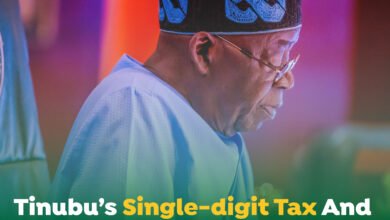
On Tuesday, July 2nd, the Chairman of the Presidential Committee on Fiscal Policy and Tax Reforms, Taiwo Oyedele, announced a significant shift in Nigeria’s tax landscape – a simplified and business-friendly Withholding Tax (WT) regime.
According to the Chairman, manufacturers and producers, including farmers, have been expunged from the lists of businesses that will be paying the new Withholding Tax.
Introduced into Nigeria’s tax system in 1977 as a form of an advance payment of income tax on specified transactions, the Withholding Tax regime provided the government with consistent revenue flow and discouraged tax evasion.
However, Mr Oyedele says as the regime broadened “to cover more transactions, various ambiguities and complications crept in.
This resulted in many businesses, especially SMEs, being exposed to an excessive burden of compliance and a strain on the working capital of low-margin businesses.”
Experts say the old Withholding Tax regime was not business-friendly and had folded up many businesses, including small and medium enterprises. They commended the federal government for exempting manufacturers and producers from paying WT.
They also contended that now that the government has removed the tax barrier, more SMEs will soon start springing up and consequently contribute to economic growth.
‘New Withholding Tax, Key Changes’
Unlike the old Withholding Tax regime, which stifled businesses, the new one is simplified and business-friendly with key changes.
According to the Chairman of the Presidential Committee on Fiscal Policy and Tax Reforms, the changes include: “Exemption of small businesses from Withholding Tax compliance, Reduced rates for businesses with low margins, Exemptions for manufacturers and producers such as farmers, Measures to curb evasion and minimise tax avoidance, Ease of obtaining credit and utilisation of tax deducted at source, Changes to reflect emerging issues and adopt global best practices, and Clarity on the timing of deduction and definition of key terms.”
The last administration of President Muhammadu Buhari introduced different taxes, many of which experts contend did not only hinder the growth of various businesses in the country but also sent some to an early grave.
However, in less than a year in office, his successor, President Bola Tinubu, set up a tax reforms committee to design a tax system that would encourage the growth of businesses.
Few months ago, the Committee announced a single-digit tax system, which it said, if signed by the President, would shrink the current over 60 taxes to nine.
With the new Withholding Tax regime, the Tinubu administration is not leaving any stone unturned in its efforts to make the country business-friendly and attractive to foreign investors.
Global Best Practices
The committee highlighted its commitment to aligning Nigeria’s WT regime with international best practices.
This includes benchmarking against countries with successful SME ecosystems, such as Kenya and Rwanda. One key area of focus is the streamlining of administrative procedures to reduce unnecessary bureaucracy for businesses.
While the reform prioritizes business growth, the government acknowledges the need for sustainable tax revenue.
The committee projects a short-term dip in WT collection due to exemptions.
However, this is expected to be offset by increased economic activity and a broader tax base fueled by the rise of new SMEs. Long-term, the government anticipates a more robust and diversified tax revenue stream.





